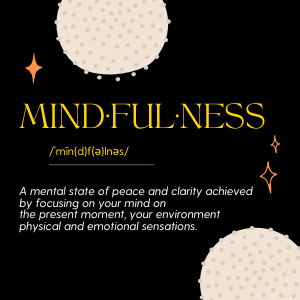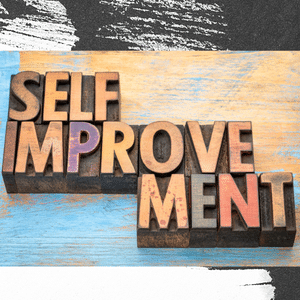

Have you ever stopped to think about the impact a simple “thank you” can have on your life and those around you? The Power of Gratitude will transform our lives and relationships for the better.
In this post, we’ll explore the science behind gratitude and how it can improve our physical, emotional, and mental well-being.
First, let’s define gratitude.
Gratitude is the act of being thankful and appreciative of what one has. A feeling of thanksgiving arises when we recognize the good things in our lives. Gratitude is different from indebtedness, which is a feeling of obligation to pay someone back for something they have done for us.
Gratitude is a positive emotion that can be cultivated and increased through practice.
So, why is knowing the power of gratitude so important? There are countless benefits to cultivating an attitude of gratitude.
For one, gratitude has been shown to improve physical health. Studies have shown that people who practice gratitude have stronger immune systems, lower blood pressure, and are less likely to experience aches and pains. Gratitude has also been linked to improving mental health.
People who express gratitude have been encountered to have higher levels of happiness and lower levels of depression and stress.
Gratitude can also improve relationships.
People who regularly express gratitude are more likely to have more significant and fulfilling relationships with their loved ones.
The power of gratitude is so vital to your health. Gratitude is a powerful emotion that can help you recover from various conditions. It can make you happier, lower your stress levels, and can even change the way your brain functions.
Gratitude can be a powerful tool for improving your mental health and your overall well-being. The more you practice gratitude, the more it can improve your life. It helps you cope with various problems and boosts your immune system.
Thanks to an attitude of gratitude, you can become more empathetic. You will also feel more confident and have more satisfying social relationships.
Practicing and developing the power of gratitude can help you to develop creative solutions to problems.
Gratitude increases your self-confidence, and you will be less prone to psychological pathologies. Being thankful can lead you to seek opportunities to contribute to society.
Gratitude helps reduce stress, which is essential for promoting better physical health. A feeling of gratitude also improves the quality of your sleep. Getting more sleep gives your heart time to repair itself.
Taking a moment to think about what you are grateful for can help you to feel better. This exercise is beneficial when you are going through a rough patch.
The Power of Gratitude is an ancient concept, and it is rooted in tradition and wisdom. People have been giving thanks during difficult times for many centuries.
When you are thankful, you can expect good things to come your way. Not only does gratitude make you feel better, but it also boosts your physical and mental health.
Gratitude helps you cope with stress, sleep better, and increase your life satisfaction. It can also improve your cardiovascular health. But how do you cultivate gratitude in your daily life?
One of the best ways to practice gratitude is to write down the good things that happen to you. Getting in the habit of writing down your gratitude will help you get focused and improve your overall happiness.
In addition to giving you an overall sense of well-being, practicing gratitude can also strengthen your social ties. Research shows that people who report more gratitude have a lower lifetime risk of depression and anxiety. Moreover, their blood pressure and cholesterol levels improve, as do their moods.
Practicing gratitude has also been found to boost your productivity. Studies have shown that the power of gratitude can boost work morale and improve relationships in the workplace.
Gratitude can also be a powerful way to help reduce social isolation, a problem that has become more apparent with the onset of pandemics. A grateful disposition can reduce your chances of developing posttraumatic stress disorder (PTSD).
Feeling thankful can help you recover from adversity and suffering. It also encourages you to pay it forward, strengthening relationships with family and friends.
Gratitude is an excellent way to improve health and well-being, and it is also an effective tool to combat depression and anxiety. This is because gratitude affirms goodness, and studies have shown that it enhances mental health and self-esteem.
Practicing gratitude can produce positive results in your relationships, career, and life. It has been linked to reduced stress, better sleep, lower rates of illness, and fewer aches and pains. And it can even help you overcome difficult situations.
Gratitude helps you become more optimistic and increases your self-control. When you show appreciation, it allows people to see you as a caring and compassionate person. Consequently, you will be more likely to receive positive feedback.
Gratitude can also help you to build better relationships with family and friends. If you are in a challenging situation, you can refer to a list of times when you felt appreciated. Sharing gratitude with a friend can be a great way to encourage them to be there for you in tough times.
A gratitude practice is straightforward. You can start with something as easy as writing down three weekly things you are grateful for.
But you can also take it one step further by creating a dedicated file on your computer or smartphone.
Gratitude is a powerful emotion that can be used to change the way we view ourselves and the world. It can also lead to more empathy and compassion. And expressing gratitude can help build relationships, strengthen our social networks, and improve our quality of life.
Practicing gratitude has been shown to lower levels of stress, anxiety, and depression. It can increase optimism, help people develop better coping skills, and reduce the risk of heart disease and death.
Being thankful can help you to look for the good in any situation. Being grateful can make you feel more positive about your life, whether it’s the good in your job, family, or health.
Studies show that more grateful people are more optimistic about solving problems. And they also have less resentment. They’re also more likely to be willing to work through their problems, and they may be better at reframing the things that go wrong in their lives.
When you practice gratitude, your body releases happiness and healthy emotion regulation chemicals. You can improve your physical, mental, and emotional well-being by taking a few minutes to reflect on what’s going right each day.
Many studies have shown that practicing gratitude can improve mental and physical health. It is also linked to a lower risk of relapse.
However, developing an attitude of gratitude takes time and effort. If you are recovering from an addiction, it may be a good idea to incorporate this practice into your daily life.
The benefits of a grateful mind include feeling more optimistic and healthy. It can also help you face problems with dignity. Gratitude can also inspire you to reach out to others. This can lead to relationships that offer you a sense of safety.
The benefits of a gratitude attitude may extend beyond the realm of addiction recovery. People who feel grateful have been found to live longer and healthier lives. Being grateful also encourages people to stay clean and sober.
When you are thankful for the little things in life, you are more likely to focus on what you have and not on what you lack. Becoming grateful has been associated with improved sleep and reduced stress.
A gratitude practice can be as simple as listing the top three weekly things you are thankful for. Keeping a gratitude journal can also help you remain grounded.
When people feel gratitude, they activate the ventral striatum, part of the brain’s reward circuit. It releases dopamine, which helps control pleasure and motivation systems.
Studies also have found that expressing gratitude can reduce stress and anxiety. It boosts the production of serotonin, which increases your sense of well-being.
To understand the link between gratitude and mental health, researchers at Indiana University studied nearly 300 adults. They used functional magnetic resonance imaging (fMRI) to track brain activity. The participants were divided into three groups. Group one wrote a letter of gratitude every week for three weeks.
Compared to the control group, participants in this group reported fewer depressive symptoms, better sleep, and a more positive outlook.
Researchers also studied the relationship between gratitude and empathy. These two factors are related to social interaction, which influences decision-making. Gratitude increases feelings of compassion and self-worth.
Although more research is needed, the results seem to be promising. As more studies are performed, we will learn more about the science behind how gratitude changes your brain.
Gratitude is a powerful emotion that can help you feel better, avoid feelings of hopelessness and stress, and improve your overall health. It can also improve your relationship with others, reduce anxiety, and build a strong, meaningful community.
One way to practice gratitude is by keeping a journal. Each day, you will write about one thing you’re grateful for.
Keeping a gratitude journal helps you develop a positive attitude. Practicing gratitude is helpful for mental and physical health and can reduce the risk of heart disease.
One study found that people who practice gratitude report less depression. Another found that practicing gratitude can lower the number of stress hormones in the body. People who exhibited a more incredible appreciation were also able to sleep better.
Studies have shown that expressing gratitude can reduce inflammation and pain. These positive emotions may even help to rewire the brain.
Practicing gratitude isn’t for everyone. But it’s worth trying. You can start by writing a gratitude list for 10 or 15 minutes weekly. Then, share your list with others.
Gratitude has been linked to some positive mental and physical health benefits. It is one of the most powerful things we can do. It helps us connect to joy and happiness again, and it helps us to remember the good things in life.
To get the most out of expressing gratitude, you need to make sure you do it in the right way. There are a number of ways to do this, and this article will outline a few of them.
One of the best ways to express gratitude is by writing a handwritten thank you note. People appreciate handwritten notes, and people will keep them for years.
Another way to show gratitude is by paying attention. When you’re busy, you should take a moment to pay attention to the world around you. Be aware of the beauty in your surroundings. You might even find a way to help others.
Using social media can be a great way to express gratitude. Whether you’re sending a gratification notice to your colleagues, posting an Instagram story, or creating an Instagram story gratitude group chat, you’re giving other people the opportunity to share their thoughts about the things they’re grateful for.
We can improve our physical, mental, and emotional well-being by cultivating gratitude. So next time someone does something for you, don’t forget to say thank you, and you never know the positive impact it might have.








